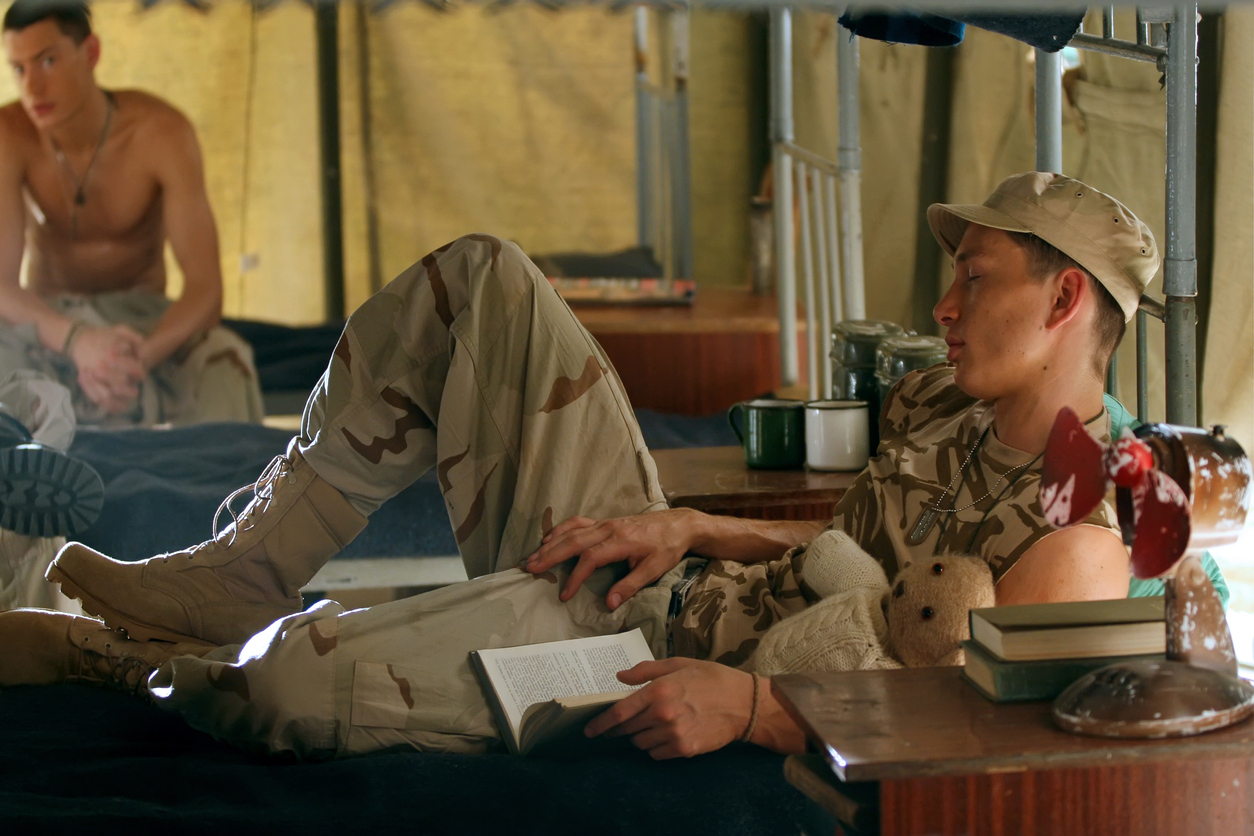How Does the Military Sleep? A Look at Performance, Safety, and the Future of Sleep Across Branches

Updated 2025
Service members face extraordinary demands that often come at the expense of adequate rest. Sleep deprivation is not just a health concern—it’s a military readiness issue that threatens safety, performance, and national defense. As Major General Aubrey Newman warned, “In peace and war, the lack of sleep works like termites in a house: below the surface, gnawing quietly and unseen to produce gradual weakening which can lead to sudden and unexpected collapse.”
Sleep Deprivation Is Rampant in the U.S. Military
Today, a staggering 93% of U.S. service members sleep 7 hours or less—far below the Department of Defense’s recommendations and nearly double the rate of civilian sleep deprivation 【GAO, 2024】. In fact, Navy personnel average just 5.25 hours of sleep per day, and this chronic deficit has far-reaching consequences for decision-making and operational performance.
Sleep deprivation is especially prevalent among those with combat experience. Among service members who’ve endured traumatic brain injuries (TBI), a study revealed 97.4% reported sleep complaints, with high incidences of obstructive sleep apnea and insomnia. Moreover, blast trauma more than doubles the risk of anxiety, amplifying the cycle of poor sleep and impaired mental health.
Sleep disorders are closely linked to depression, PTSD, panic disorder, and even suicidal ideation, emphasizing the urgent need for systemic reform.
Branch-Specific Sleep Challenges
Sleep quality varies across military branches. According to recent data, Army personnel suffer the highest rates of sleep dysfunction, including sleep apnea and insomnia, while Air Force members report better sleep habits comparatively 【Journal SLEEP, 2023】.
One of the key differences? Leadership. Surveys show that only 26% of Army leaders actively encourage sufficient sleep, and fewer than a third believe it contributes significantly to mission success. This cultural oversight begins in training, where cadets and soldiers average fewer than 5 hours of sleep per night, frequently disrupted by environmental factors multiple times each night.
Perhaps most troubling: fewer than 4% of service members seek help for sleep-related issues, leading to chronic problems long after deployment. In fact, 70% of personnel report sleeping less than 7 hours a night even 3–5 months after returning from deployment 【Millennium Cohort Study】.
The Effects of Sleep Deprivation on Military Performance
The consequences of inadequate sleep are severe. Fatigue has been linked to critical errors in navigation, shooting accuracy, threat assessment, and equipment monitoring. For example, a study on artillery marksmanship found that shortened sleep worsened performance the next day, proving that no amount of adrenaline can replace lost rest.
This isn’t just theoretical: fatigue played a central role in the 2017 Navy ship collisions, which killed 17 sailors and cost hundreds of millions in damages 【GAO, 2024】. The risks of training mishaps, medical errors, and tactical failures multiply exponentially when sleep is neglected.
According to the U.S. Army Research Institute of Environmental Medicine, “In response to this epidemic-like increase in sleep disorders, their prevention, identification, and aggressive treatment should become a health-care priority of the US military.”
Sleep Is Finally Becoming the U.S Military’s Secret Weapon
The Department of Defense is finally recognizing sleep as a critical factor in combat readiness. Since 2017, it has funded over 130 fatigue-related research projects, and the Army was the first to launch a branch-wide education program on sleep health. The Holistic Health and Fitness Manual, updated in 2020, integrates science-backed sleep strategies into training.
In a major milestone, the Pentagon’s 2021 report to Congress outlined specific reforms to counteract sleep loss, and by 2024, new recommendations were emphasized by the GAO. These include:
- Structuring duty schedules to allow 8 hours of sleep
- Training leaders in sleep leadership
- Educating service members on caffeine reduction
- Addressing travel-related circadian rhythm issues
- Promoting mobile apps and brief behavioral therapy for sleep
- Establishing a centralized clearinghouse for military sleep resources
These reforms mark a significant cultural shift, recognizing that rest is not a luxury—it’s a military imperative. The brain, body, and mission readiness all depend on it.
How SleepScore Can Help
If you’re a service member, veteran, or anyone struggling with sleep, SleepScore’s free app offers personalized insights into your sleep patterns and progress, backed by science. Track your sleep and receive actionable guidance to improve it—Download the free SleepScore App for insights and articles on how well you sleep, the quality and quantity of your sleep cycles, and sleep improvement progress with science-backed tips and insights. Download it for free from App Store.
Sleep well! Serve Strong.
Sources
Sources:
Government Accountability Office (GAO). (2024, April 24). Lack of Sleep Has Left Our Military Less Combat Ready and More Prone to Accidents—With Dire Consequences. Retrieved from https://www.gao.gov/blog/lack-sleep-has-left-our-military-less-combat-ready-and-more-prone-accidents-dire-consequences
Government Accountability Office (GAO). (2024). Military Fatigue: DOD Should Improve Oversight of Efforts to Address Fatigue-Related Risks. Report No. GAO-24-105917. Retrieved from https://www.gao.gov/products/gao-24-105917
Mysliwiec, V., et al. (2013). Sleep disorders and associated medical comorbidities in active duty military personnel. Sleep, 36(2), 167–174. https://doi.org/10.5665/sleep.2366
Defense Health Research Program. (2023). Fatigue and Sleep Management in Tactical Environments. U.S. Department of Defense Internal Briefing Document.
Seelig, A. D., Jacobson, I. G., Smith, B., et al. (2010). Sleep patterns before, during, and after deployment to Iraq and Afghanistan. Sleep, 33(12), 1615–1622. https://doi.org/10.1093/sleep/33.12.1615
U.S. Army. (2020). Holistic Health and Fitness: Army Field Manual FM 7-22. Washington, DC: Headquarters, Department of the Army. https://armypubs.army.mil